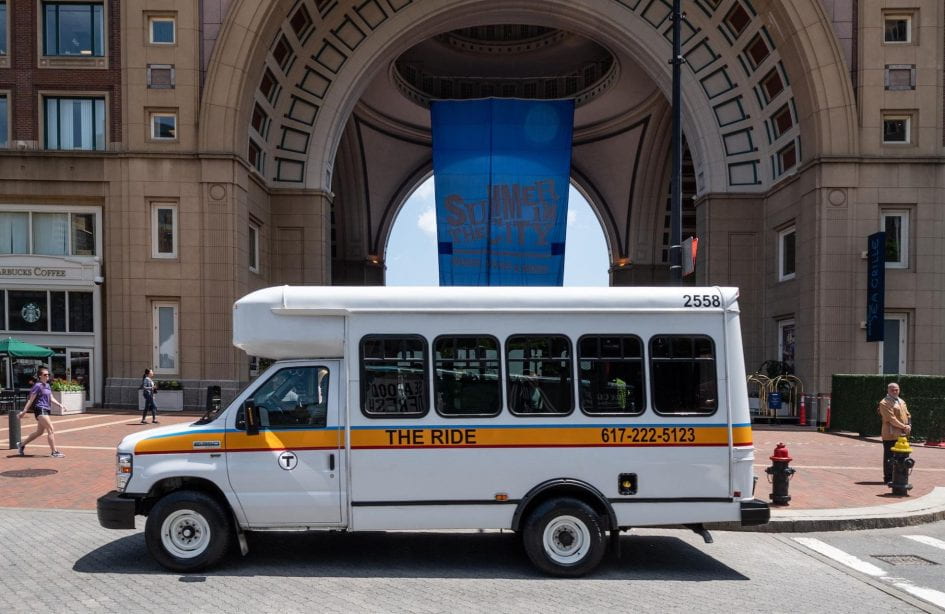Research that gerontology doctoral candidate Shayna Gleason, MS, began as an independent study project was recently published by The Gerontologist. In her article, “Challenges and Visions for the Future Among Paratransit Providers,” co-authored with faculty member Nina Silverstein, PhD, Gleason talks with 16 providers of paratransit—the demand-responsive transportation services typically offered for people who are mobility disadvantaged—across the United States and Canada.
Since 1990, the Americans with Disabilities Act (ADA) has required public transit agencies that provide fixed-route service to provide “complementary paratransit” service to people who cannot use the fixed-route bus or rail service because of a disability. The ADA regulations define minimum service characteristics that must be met; in general, paratransit service must be provided within three-quarters of a mile of a bus route or rail station, at the same hours and days, for no more than twice the regular fixed route fare. Gleason spoke with leaders of ADA-complementary paratransit services as well as other paratransit services that are not anchored to a fixed route.

Gleason’s interest in paratransit service began when she was working on an age-friendly initiative in Pittsburgh. She watched riders struggle with issues such as advance reservation rules and strict requirements for who is eligible for the services. “People often fall through the cracks,” she says. At the same time, she saw great potential in paratransit services.
For her research, Gleason asked the providers about their challenges but also their dreams. Her article details some of those visions, like the possibilities for electric vehicles. “It will take plenty of investment and policy changes,” she acknowledges, to achieve their visions.
“This research sheds light on an important and emerging issue,” Silverstein says of the article, which is Gleason’s first published work as a first author.
Gleason hopes her dissertation will build on some of her work and interest in transportation challenges. In September, Gleason began working part time with the Transit Workforce Center, the Federal Transit Administration’s first national technical assistance center for transit workforce development.


Leave a Reply